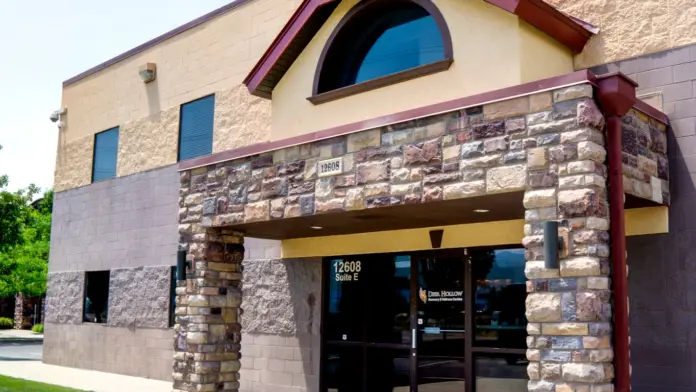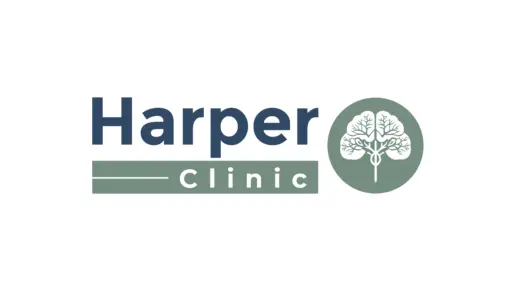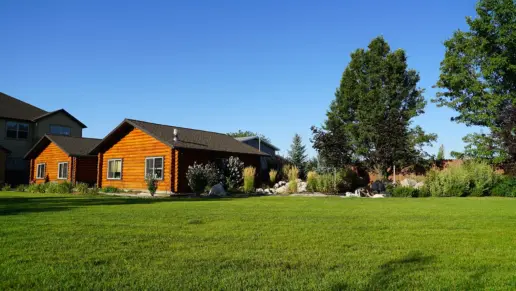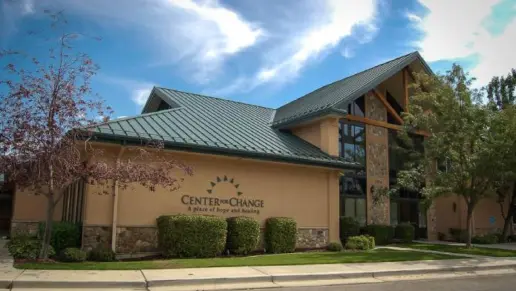About Deer Hollow – Outpatient
Deer Hollow is the leading mental health center in the country providing deeply caring, comprehensive treatment to individuals struggling with the devastating impacts and overwhelming challenges of trauma. During this phase you have more freedom to practice recovery skills and integrate everything you learned back into society, while still working
Most therapy is spent exploring the unhealthy things we do in our lives to cope with underlying pain and feelings of fear, shame, abandonment, and feeling out of control and not feeling safe. This pain is often from wounds that begin in childhood and are validated through our relationships, our jobs, and our personal choices. People often turn to behavioral addictions and substance abuse to deal with the pain that manifests as PTSD, anxiety, depression, and suicidal thoughts. This pain is core trauma.
How We Treat Core Trauma
Deer Hollow is set apart from all other recovery and wellness programs because of how our expert clinicians apply our unique combination of treatments (also called modalities). We combine cutting-edge, evidence-based, best practice intensive trauma treatments with specialized therapies that enable us to treat trauma at its core and enables you to truly step into healing.
Location
Location
Accepted Insurance





Other Forms of Payment
Self-pay involves paying for treatment out of your own pocket. You can use savings or credit, get a personal loan, or receive help from family and friends to fund your treatment. If you don't have insurance or your insurance plan doesn't cover a specific program, self-pay can help ensure you still get the care you need.
Private insurance refers to any kind of healthcare coverage that isn't from the state or federal government. This includes individual and family plans offered by an employer or purchased from the Insurance Marketplace. Every plan will have different requirements and out of pocket costs so be sure to get the full details before you start treatment.
Military members, veterans, and eligible dependents have access to specific insurance programs that help them get the care they need. TRICARE and VA insurance can help you access low cost or no cost addiction and mental health treatment. Programs that accept military insurance often have targeted treatment focused on the unique challenges military members, veterans, and their families face.
Addiction Treatments
Levels of Care
Treatments
The goal of treatment for alcoholism is abstinence. Those with poor social support, poor motivation, or psychiatric disorders tend to relapse within a few years of treatment. For these people, success is measured by longer periods of abstinence, reduced use of alcohol, better health, and improved social functioning. Recovery and Maintenance are usually based on 12 step programs and AA meetings.
When you enter a drug rehab in Utah, the process usually involves four stages: treatment initiation, early abstinence, maintaining abstinence, and advanced recovery. Treatment methods can rely on medications, counseling, or both, in either an outpatient or inpatient setting.
A combined mental health and substance abuse rehab has the staff and resources available to handle individuals with both mental health and substance abuse issues. It can be challenging to determine where a specific symptom stems from (a mental health issue or an issue related to substance abuse), so mental health and substance abuse professionals are helpful in detangling symptoms and keeping treatment on track.
Opioid rehabs specialize in supporting those recovering from opioid addiction. They treat those suffering from addiction to illegal opioids like heroin, as well as prescription drugs like oxycodone. These centers typically combine both physical as well as mental and emotional support to help stop addiction. Physical support often includes medical detox and subsequent medical support (including medication), and mental support includes in-depth therapy to address the underlying causes of addiction.
Programs


Clinical Services
Group therapy is an opportunity for the client to better see themselves in the eyes of others. They help their clients understand how the patient interact with others and how their words and actions might affect them. In group therapy all are equal and given a chance to gain insight into themselves through the group dynamics that naturally develop. Allowing their clients to relate to each other, to gain empathy and awareness, is a key facet in their recovery and a powerful, tool for change.
In individual therapy, a patient meets one-on-one with a trained psychologist or counselor. Therapy is a pivotal part of effective substance abuse treatment, as it often covers root causes of addiction, including challenges faced by the patient in their social, family, and work/school life.
Life skills trainings involve all the skills a person must have in order to function successfully in the world. These include time management, career guidance, money management, and effective communication. Truly successful addiction recovery is based on the ability to not only live substance-free, but to thrive. Life skills teaches the practical necessities of functioning in society, which sets clients up for success in life, and therefore sobriety.
Sound therapy (aka sound healing or vibrational medicine) uses sonic vibrations to stimulate healing at the cellular level. Vibrations, either from the human voice or resonant objects like tuning forks, gongs, or Tibetan bowls, affect cellular resonance in the body, which can help heal the impact of anxiety, depression, trauma, and more.
Amenities
-
Private Setting
Accreditations

The Joint Commission, formerly known as JCAHO, is a nonprofit organization that accredits rehab organizations and programs. Founded in 1951, the Joint Commision's mission is to improve the quality of patient care and demonstrating the quality of patient care.
Joint Commission Accreditation: Yes
Contact Information
12608 S. 125 W. Suite E
Draper, UT 84020










